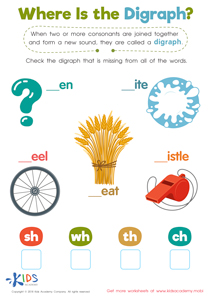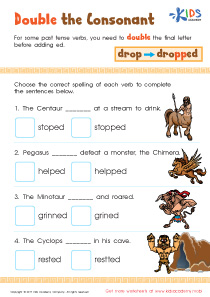Normal Beginning Consonants Worksheets for Ages 5-8
9 filtered results
-
From - To
Welcome to our "Normal Beginning Consonants Worksheets for Ages 5-8" page! These engaging and interactive worksheets are specially designed to help young learners master the sounds and recognition of consonants at the beginning of words. With colorful illustrations and diverse activities, children will enjoy practicing their phonics skills, enhancing their vocabulary, and building confidence in reading. Ideal for both classroom and home use, these worksheets offer a fun way to develop essential early literacy skills. Download and print them easily to create a dynamic learning experience that encourages exploration and discovery of language concepts for your little learners.
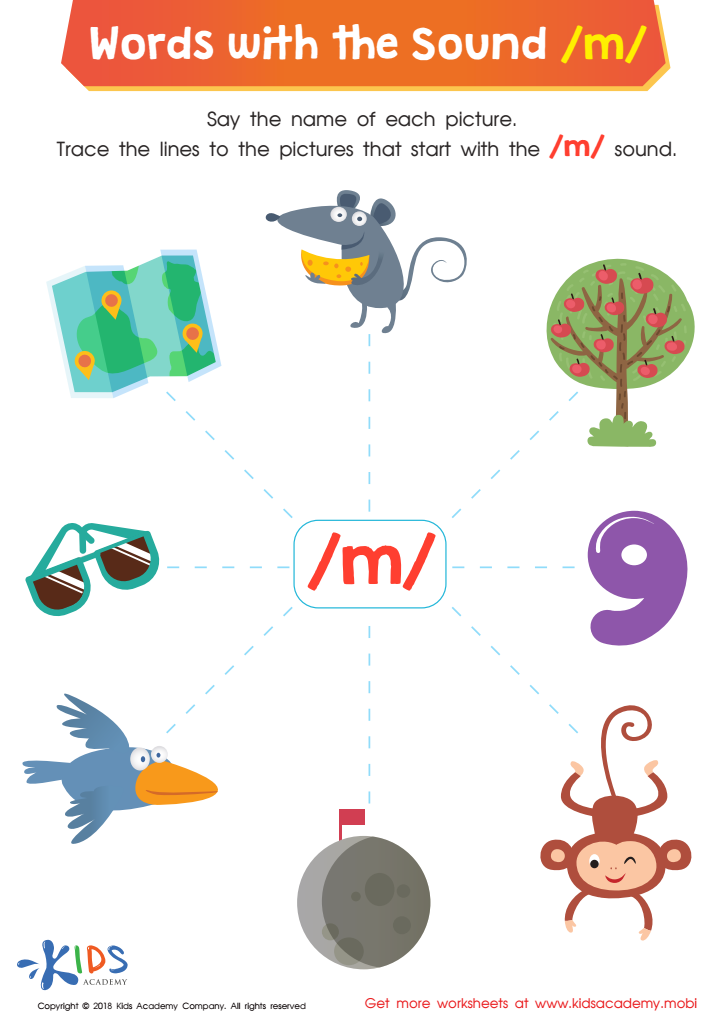

Words with Sound M Reading Worksheet
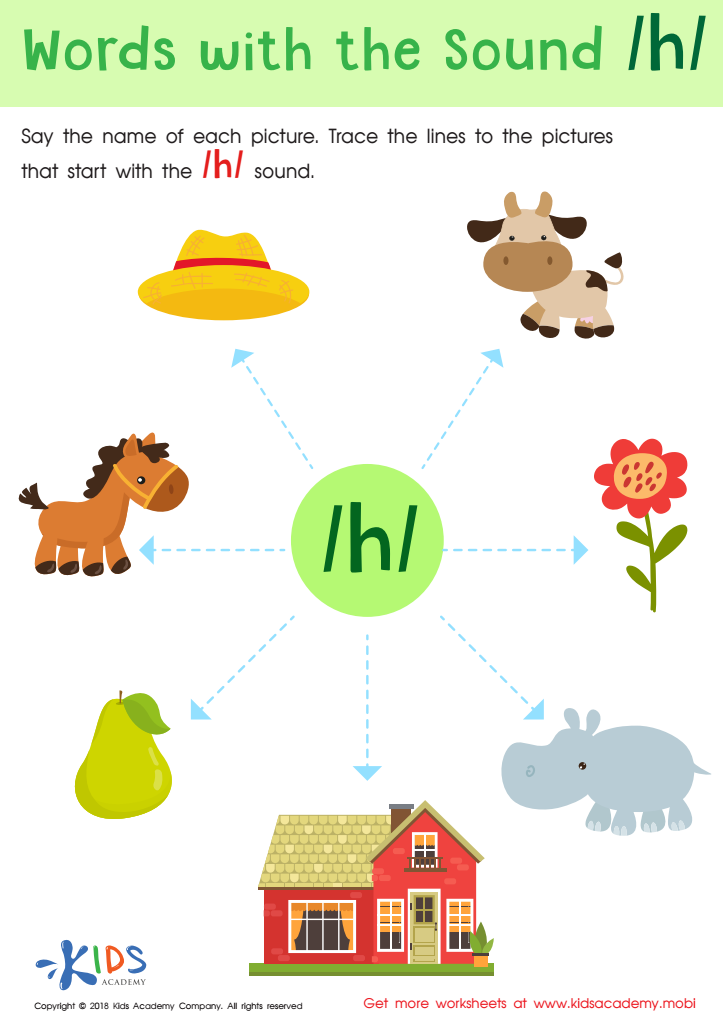

Words with sound h Reading Worksheet


Words with sound p Reading Worksheet


Words with sound f Reading Worksheet


Twin Onset Worksheet


Vowel and Consonant Sounds: Assessment Worksheet
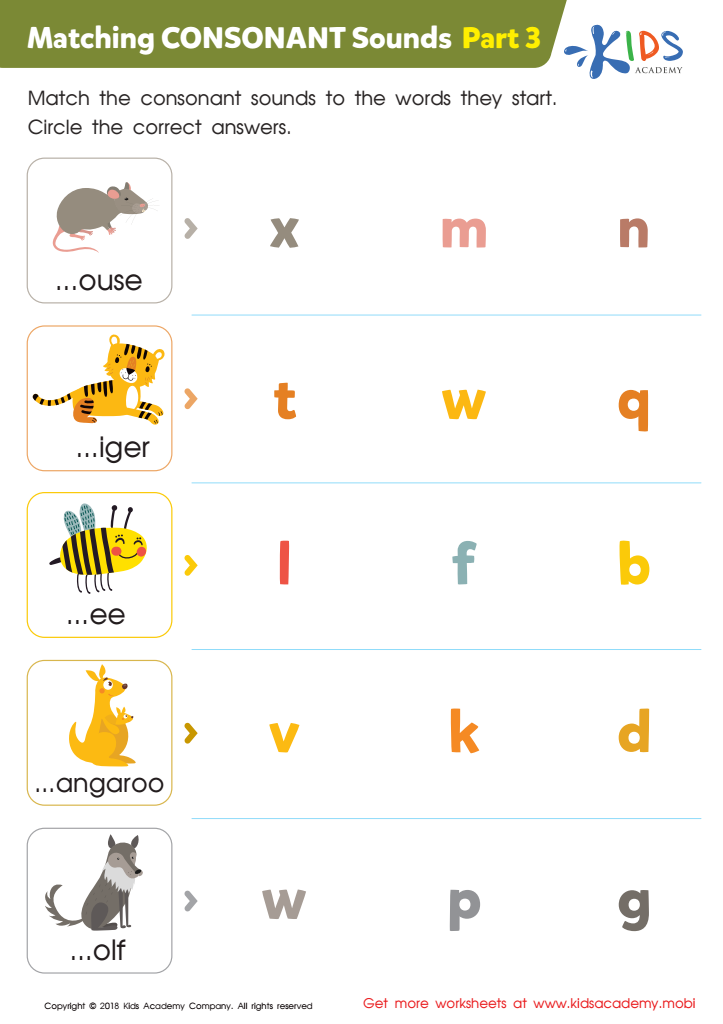

Matching Consonant Sounds: Part 3 Worksheet
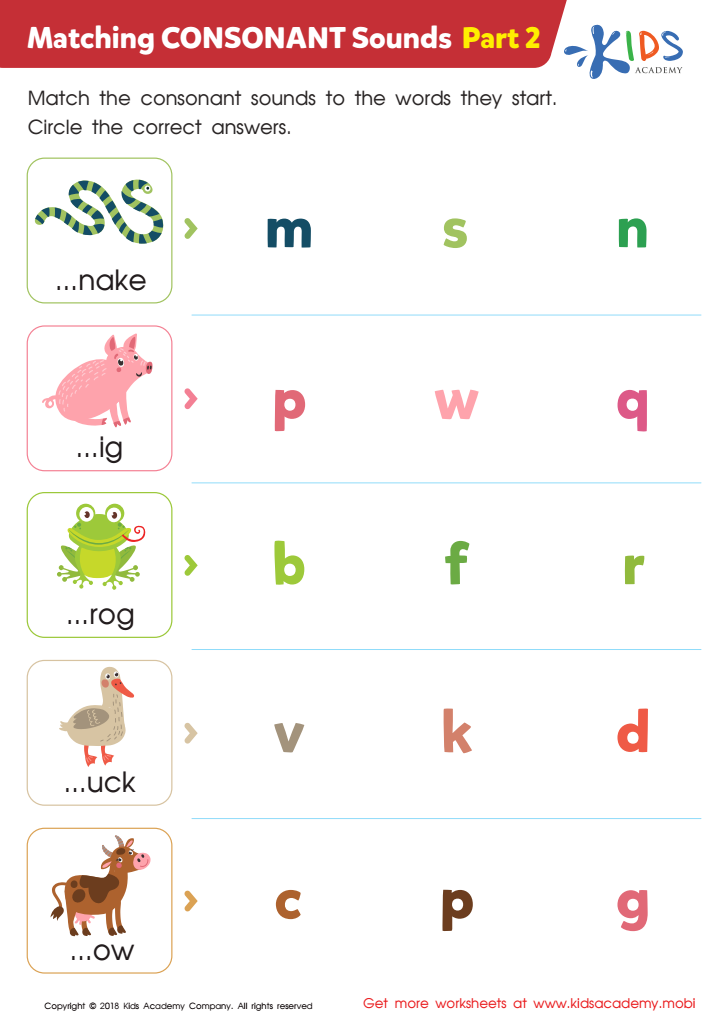

Matching Consonant Sounds: Part 2 Worksheet
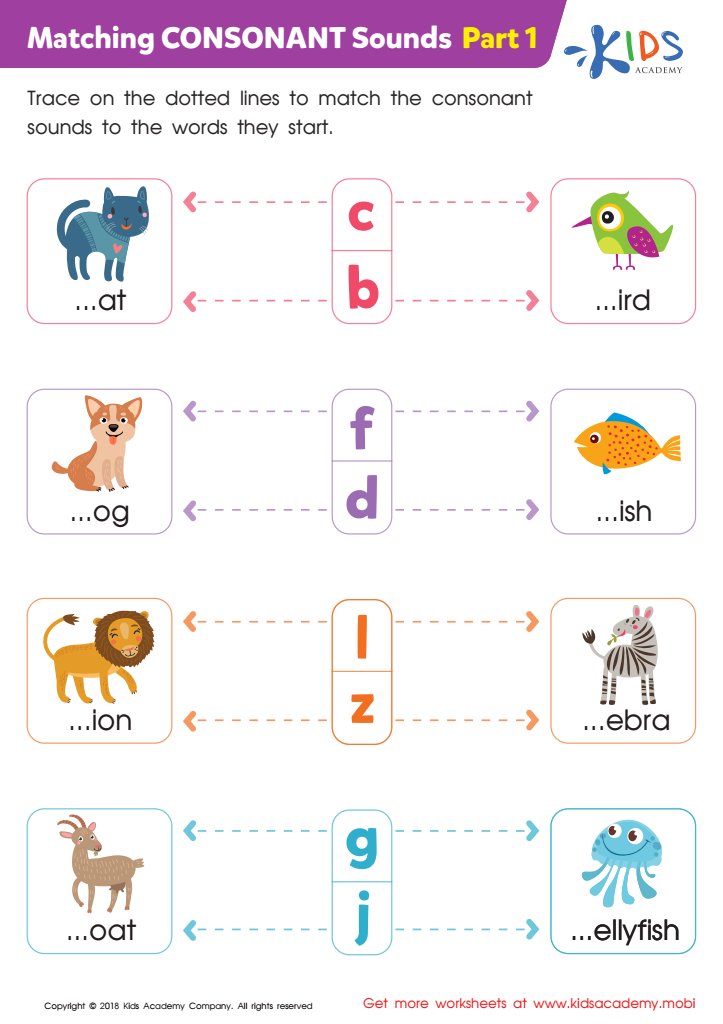

Matching Consonant Sounds: Part 1 Worksheet
Parents and teachers should care about normal beginning consonants for children ages 5-8 because they form the foundation of reading and literacy development. Understanding beginning consonants is crucial, as it enables children to decode words and enhance their phonemic awareness. At this age, kids are honing their ability to recognize sounds and relate them to letters, which is vital for effective reading and spelling.
When children learn to identify and articulate beginning consonant sounds, they become more confident readers. This skill problematically contributes to their ability to blend sounds and ultimately read more complex words. Additionally, recognizing these consonants aids in vocabulary development, as many common words share similar beginning sounds.
Moreover, engaging in activities focused on beginning consonants can make learning enjoyable, fostering a love for reading. It also encourages parents and teachers to participate actively in a child’s literacy journey, creating rich opportunities for conversation and bonding.
Ultimately, helping children master beginning consonants equips them with essential tools for academic success and lifelong learning. By prioritizing this foundation, parents and teachers can support not only reading skills but also overall cognitive development, encouraging children to become confident communicators and enthusiastic learners.
 Assign to My Students
Assign to My Students


